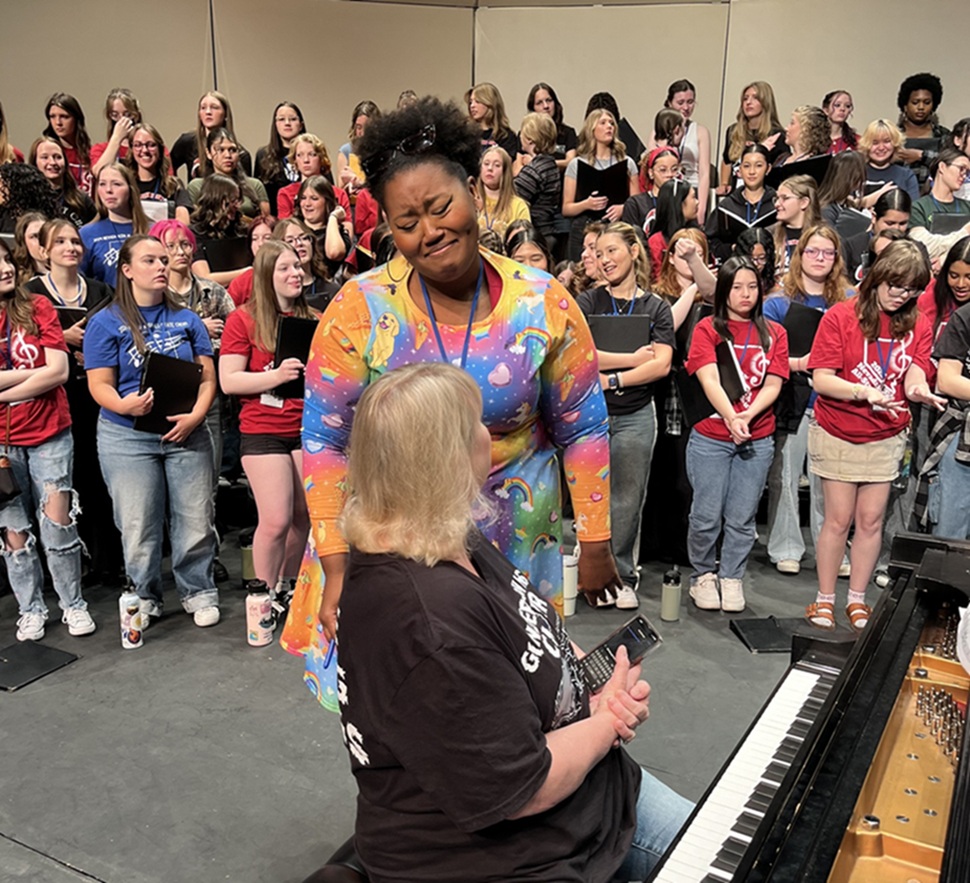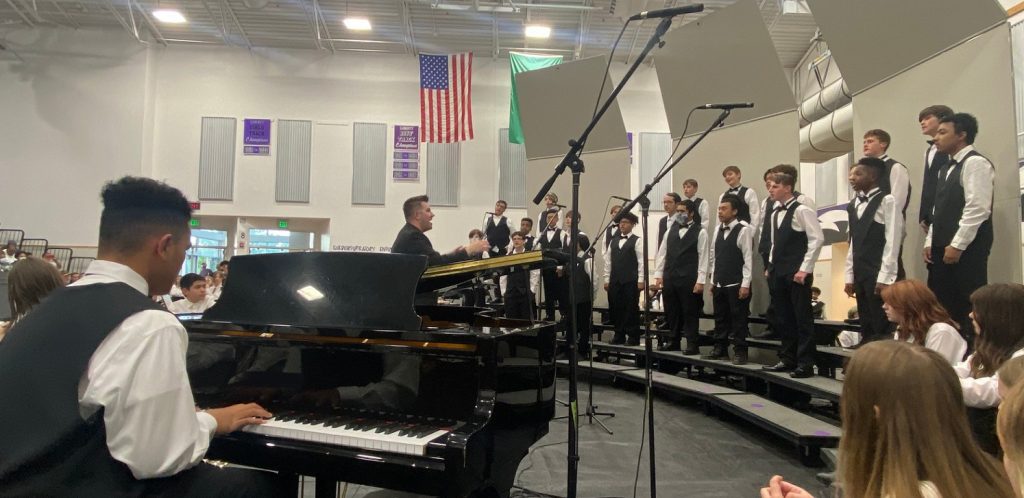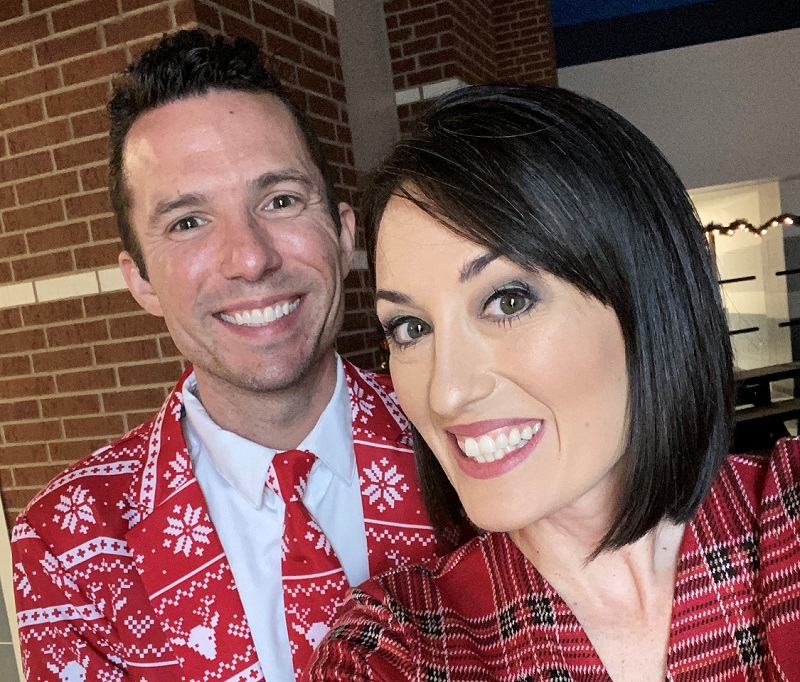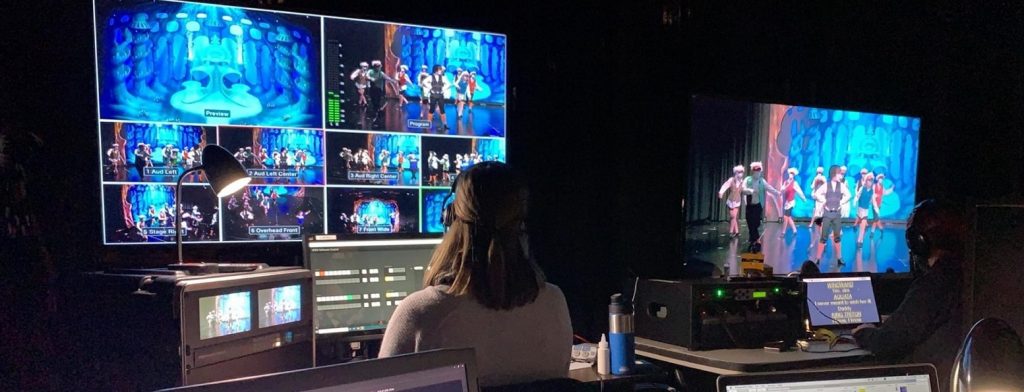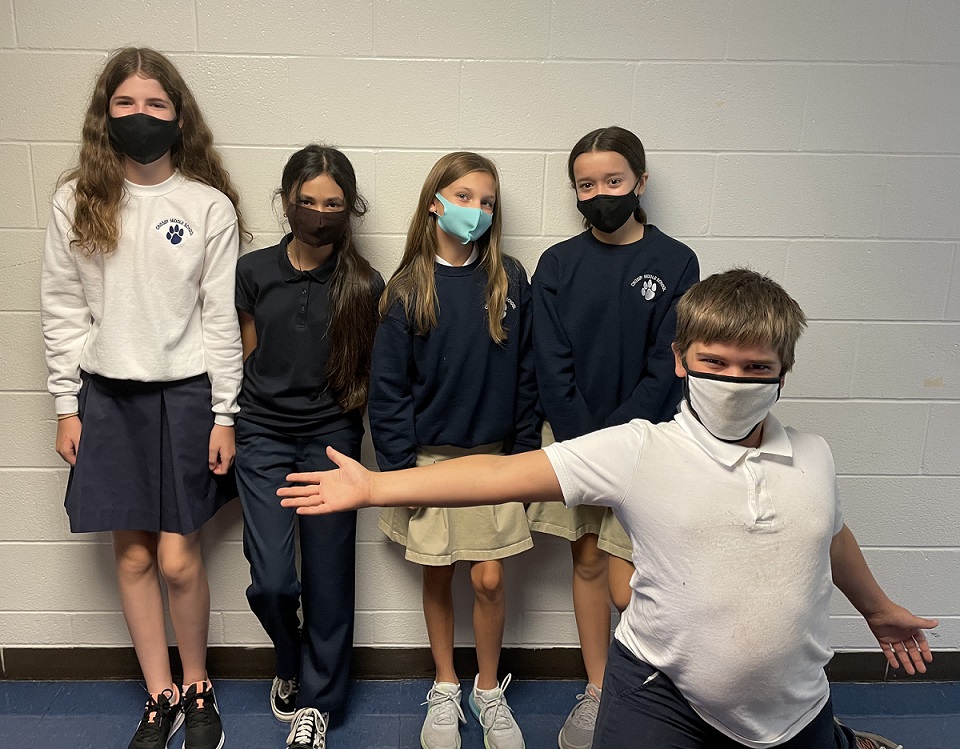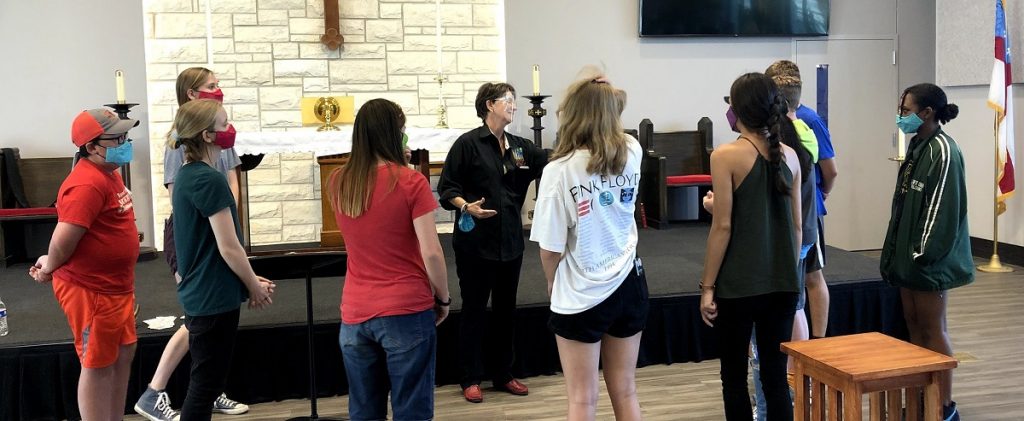Tagged Under:
Using Choir as a Tool for Belonging, Voice and Agency
Clear communication and empathy are the overriding tenets in Coty Raven Morris’ class at Portland State University.
Coty Raven Morris, the Hinckley Assistant Professor of Choir, Music Education and Social Justice at Portland State University in Oregon, believes that her life’s purpose is to touch as many lives as she can through music. She works primarily with students who want to make music or music education their career, but she also mentors students who want to try out chorus at the university level.
“I meet some students who say, ‘I can’t sing,’” Morris explains. “I say, ‘Yes, you can — you just can’t yet.’ Someone must have entered their lives at a vulnerable developmental state and told them they couldn’t. I tell them, ‘You just didn’t have the right teacher. But I’m here.’”
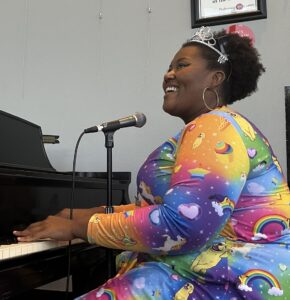
A Musical Beginning
Growing up in New Orleans, Morris was consistently surrounded by music. Her grandmother, Olga, was a jazz singer, and her aunt, Lillian, sang in the church choir. Morris was encouraged to sing in the church choir as a way to keep out of trouble. When she moved to Texas when she was 12, her eyes were opened to the magic of what art, in the form of a choir class, can do.
“I remember a specific moment when my high school choir teacher, Patrick Dill, played a song on the piano called ‘Water Night’ by Eric Whitacre,’” Morris recalls. “I was hearing all these amazing cluster chords of crunchy notes. Then, the music just opened up. I heard these angelic voices sing with no accompaniment, no instruments. My first thought was, ‘Oh my God, someone could lead people to make these sounds.’ I wanted to know what it was like to do that. It was the first time that I processed what choir could do for people — for the mind and for the body.”
Morris majored in vocal music education at Texas State University. Throughout undergrad, she sang in collegiate choirs, went to competitions and conferences, and attended All-State Choir Camp, which was a formative experience.
“I had a tumultuous upbringing, and camp was a place where I was able to be whoever I wanted to be,” Morris says. “I could be my complete dorky, chaotic, beautiful, vulnerable, emotional self around a whole bunch of other kids who were investing a part of their summer to learn music, performing dances and doing all of those fun adolescent things.”
During her freshman year, the idea to pursue music education piqued her interest, so she joined a group called METS (Music Educators at Texas State). But it was the influence of two of her choir teachers, Dr. Joey Martin and recently retired Director of Choral Music Education, Lynn Brinkmeyer, at Texas State, who sparked the idea of going into music education.
“The experiences in their classrooms and seeing what they were able to provide for us as students, really laid out a path for me to be an educator,” Morris says.
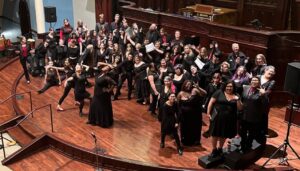
A Pedagogy of Patience and Empathy
In her own classroom, Morris endeavors to foster clear communication and empathy among her students.
“It can be the physical act of singing in the choir or communicating with the neighbor next to you,” Morris explains. “It could be in moments when my students know that I said something incorrect, and they say, ‘Professor Coty, I think what you actually meant was this.’ Or, ‘When you said that thing, it hurt my feelings, and I want to talk about it.’ That kind of communication is something that takes practice.”
Morris feels fortunate to be a positive influence on so many young people, especially to those who are still trying to figure out who they are and where they belong in the world. “I meet a number of students who are discovering themselves, and it is not my job to tell them who they are or who they are not,” she says. “It’s my job to create a pathway that they can walk down and discover that for themselves.”
As a Black woman, Morris knows what it’s like to be told that everything that she does is good “considering,” good “despite.” In her classroom, everyone is special, but no one is given special treatment.
“I’m going to teach my students of color with the same love and care as I do with students who are not of color,” Morris says. “I never want a bar to be lowered just because of the circumstances that I’ve been in, so it’s the same with my students. I want my students to find fortitude in themselves. I want to help them become reliant on themselves and trust their gut.”
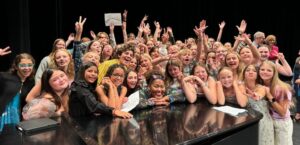
Being Human Together
Communication is such an integral part of Morris’ teaching philosophy that she started Being Human Together, a community of music educators striving to normalize difficult topics they encounter. Through workshops, these educators come together to discuss topics like micro-aggressions and how bias presents itself in different spaces. Through conversation, traditionally taboo subjects like mental health, systemic oppression, diversity and inclusivity are examined.
“The main goal of Being Human Together is to facilitate these difficult conversations,” she says.
With the number of complex issues that are happening with young people today, Morris felt that there needed to be a safe space to address these topics head-on. “We ingrain conversations about social awareness, self-awareness, self-management and responsible decision-making, and we reveal it from the material,” she explains.
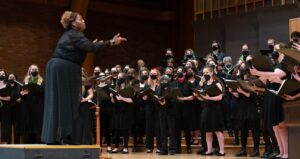
Working with the Houseless Community
Morris also makes it a priority to work in collaboration with the houseless community of Portland. This is important to her because she was houseless from around the age of 15 through her undergraduate studies.
She doesn’t have to go far beyond the classroom to find people who are in need. “We have a lot of houseless students here at Portland State,” Morris says. “So, you must start from the inside out. You must take care of your house first. My goal is to make at least some parts of their academic experience not questionable, and to show them what they could have access to.”
In June 2025, Morris took 78 of her students to Carnegie Hall in New York to perform as a headlining ensemble at the In Harmony Concert. Many of these students had housing insecurity or had been displaced because of their gender or sexual identity. “It was magical,” says Morris of the performance, during which she premiered an original piece with over 450 singers, including the Gay Men’s Chorus of Washington, D.C.
Next year, Morris, who was recognized as a 2025 Yamaha “40 Under 40” educator and a three-time Grammy Music Educator Award nominee, is looking forward to partnering with Path Home, a community for houseless families. Under her supervision, Portland State students will serve as teachers and leaders for youth and parent ensembles. “We have the partnership and the funding coming in to support these initiatives, so we’re actually able to employ people into this work,” Morris says. “It’s very exciting.”

Love is a Verb
Above all, Morris wants her actions as an educator to speak just as loudly as her words.
“Love is a verb,” Morris says. “It all happens in our actions, in our words. It happens first as a thought and a seed that we plant in our minds, and our actions must align with those thoughts. If, on the way to executing love, you have missteps, just know that you have the ability to begin again. Do not give up! Take a timeout, learn the lesson, find your way of processing the chaos that’s happening around you, because you are needed.”
Through music, Morris is able to use this art form to empower her students to feel like they are a part of something bigger than themselves, one lesson, one song, one note at a time.
“Let art be the vehicle that allows you to soften your heart and strengthen your mind,” Morris says.










